Esports: the digital arena that's redefining entertainment
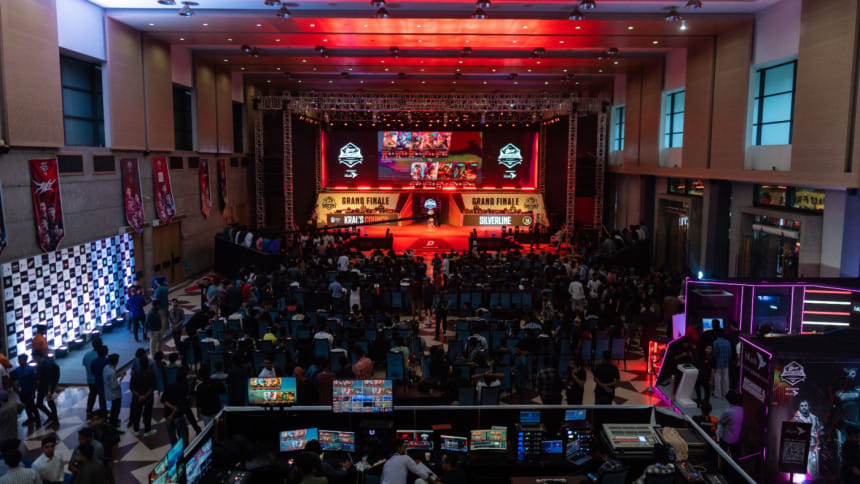
Not so long ago, spending a day glued to a screen with a controller in hand was dismissed as a sign of reclusiveness and unproductivity. Fast forward to today, and esports tournaments are packing out arenas and dazzling global audiences with pyrotechnics, light shows, and production values that rival high-end television broadcasts.
What began as a niche pastime has transformed into a full-blown entertainment spectacle, one that sells out stadiums, commands prime-time viewership, and even attracts the attention of national governments and Olympic committees.

Sky-high revenues and soaring audiences
The numbers speak for themselves. According to Statista, the global esports market is projected to reach US$4.8 billion in 2025, growing to US$5.9 billion by 2029 with an annual rate of 5.56%.
That's an impressive number, especially considering how it was around $2 billion just two years ago, in 2023.
The spectacle is even more evident in events like Riot Games' 2024 League of Legends World Championship, which hit 6.9 million peak viewers and filled London's O2 Arena with 14,700 fans. Similarly, Malaysia's Mobile Legends: Bang Bang M6 World Championship drew a peak of 4.13 million online viewers. Once considered a niche, these tournaments now rival traditional sporting events in both engagement and scale.
The irresistible appeal of esports
At the heart of this boom lies a unique combination of accessibility, viewer engagement, and constant innovation. Zonaed Arefin Zahin ("lilzahzah"), esports coach and streamer, explains, "Esports are very easily accessible because they only require internet access, allowing participants to connect and compete from anywhere globally. Most popular games that are in esports right now also require very little resources and can be played on low-end devices as well."
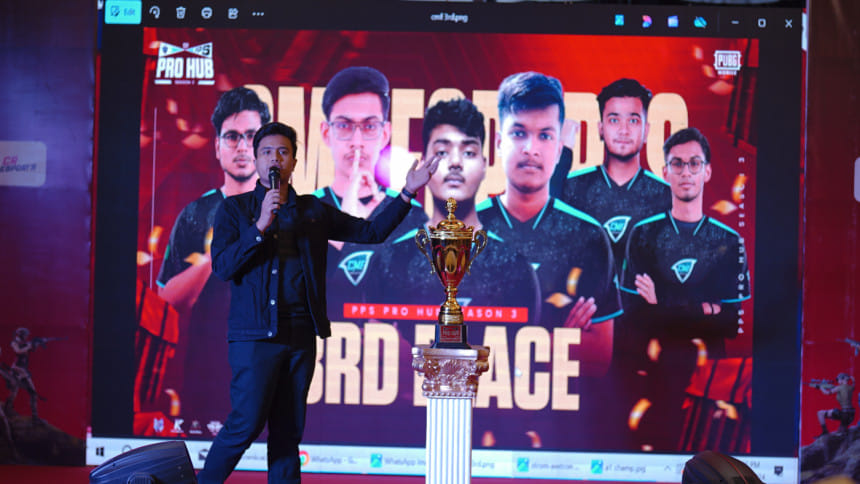
This digital inclusivity truly levels the playing field. Unlike traditional sports tethered to expensive facilities or broadcasting deals, esports allows anyone with a basic setup to watch or participate. Esports streamer and Valorant tournament regular Samiha Anjum Raima ("Scarr") comments on the inclusivity: "Esports tournaments are way more interactive, where you can watch, cheer, and even talk to your favourite players in real time. That kind of closeness just doesn't exist in traditional sports or TV."
"When it comes to accessibility, engagement, and innovation, traditional sports and TV shows often fall short of esports," Zonaed notes. "Esports is driven by adrenaline and unpredictable moments. From clutches, comebacks, to the crowd hypes, esports events are guaranteed to keep you glued to the screen. As such, viewers feel like a part of the event, not just spectators."
Live commentary, just like with traditional sports, elevates esports into a full-fledged spectacle. "Commentary adds glamour, emotional connection, and makes it more exciting. I don't think esports tournaments would be possible without commentary," says Abdullah Al Noman ("FinixOP"), a veteran of the local esports scene with seven years of professional commentary experience. Vivid play-by-play narrations in esports amplify every moment, making even virtual battles feel larger than life.
Online platforms: esports' growth engine
One of the biggest drivers of esports' explosive growth as an entertainment spectacle is its native habitat: online platforms. "Platforms like Twitch and YouTube are the main reasons behind the growth of esports," Zonaed asserts. "The new generations and most people nowadays prefer consuming content on digital platforms over traditional television, which aligns with their preferences, facilitating higher engagement and viewership."
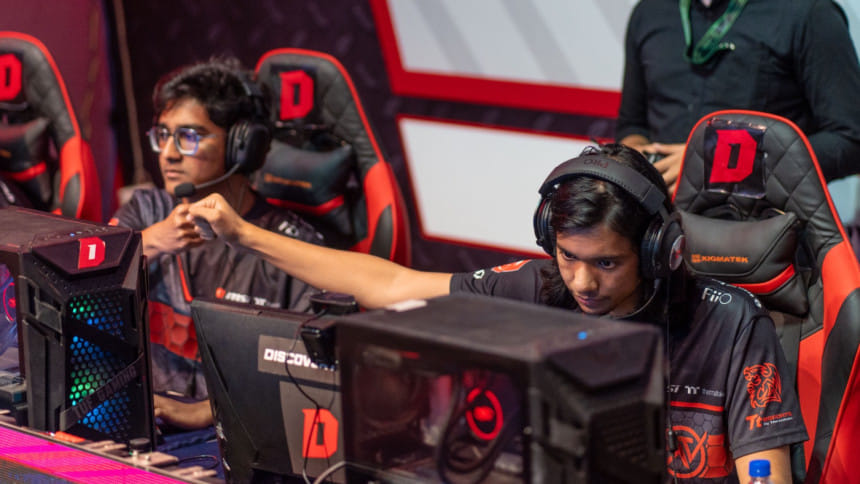
Unlike television, these platforms prioritise interaction with live chats, community polls, and influencer watch parties that transform viewers into participants. "The online platforms also provide detailed analytics on viewer behaviour, enabling organisers to tailor content and marketing strategies effectively. This data-driven approach supports continuous growth and adaptation to audience preferences, which cannot be done on traditional TV," Zonaed adds.
SI Anik, who represented Bangladesh on the main stage of both Capcom Cup 11 and 10, the official Street Fighter 6 tournament, shares a similar view: "I believe esports being primarily hosted on platforms like Twitch and YouTube significantly helps its growth," pointing to global accessibility and inclusiveness as the main strengths.
Samiha echoes this sentiment: "Twitch, Facebook, and YouTube are where our audience is at. That's where we connect, build friendships, and grow our community." She adds, "Traditional sports have their place, but esports belong online. It's faster, more engaging, and way more personal. Anyone can stream, watch, or compete; you don't need anything fancy. Just your passion."
Abdullah offers a broader perspective, particularly a timeline of esports' sudden growth: "Online platforms are certainly contributing to the growth of esports' reach. The popularity reached a peak during Covid-19, but then suffered a slight decline in 2022–23. In 2024–25, we have observed exponential growth."
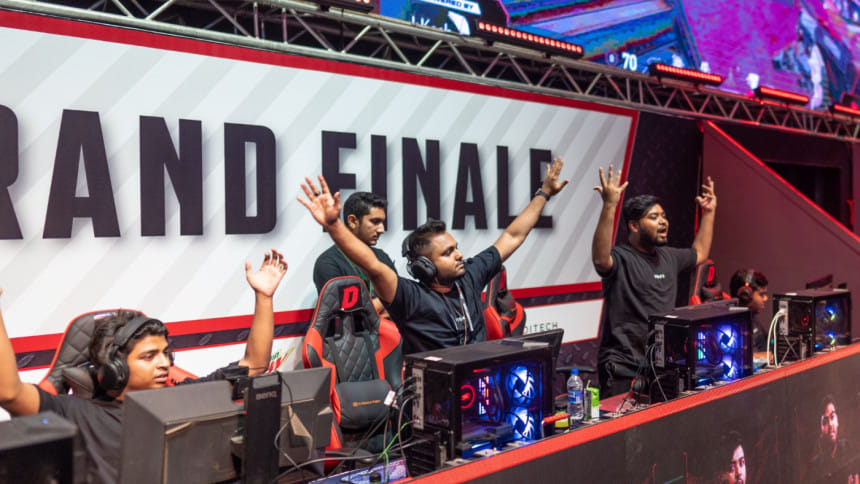
Additionally, the online world has democratised esports viewership and participation, breaking through time zones, languages, and even political and geographical barriers. "One thing esports does better than traditional sports is breaking down boundaries," says Abdullah, "In last year's PUBG World Cup, there was a team with both a Russian and a Ukrainian player, at a time when their countries are at war."
"In esports, as long as you play well and respect your platform and teammates, your personal background takes a back seat," Abdullah adds. Furthermore, in places where TV licensing is restrictive, fans simply tune in through mobile data or free apps, a practice that is perfectly aligned with modern consumption habits.
Global and local momentum
Governments and institutions are increasingly recognising the cultural and economic impact of esports. Saudi Arabia's US$38 billion investment in gaming and its partnership with the International Olympic Committee to launch the Olympic Esports Games in 2027 are major milestones. Similar international examples can be seen with 2022's Commonwealth Esports Championship in Birmingham, where 12 nations competed in Dota 2, eFootball, and Rocket League, with the next edition to be held in Glasgow in 2026. Esports was also officially included as a medal event at the 2022 Asian Games in Hangzhou, after its debut as a demonstration sport in 2018.
In Bangladesh, while the esports ecosystem is still developing, it is rapidly gaining traction. Both mobile and computer-based esports skyrocketed during pandemic lockdowns, especially with wider 4G access in the country. "Even big brands are now talking about capitalising on a game like PUBG, which has about millions of players in this country," says Abdullah. He attributes the most recent surge to the lifting of PUBG Mobile's national ban and the launch of the PUBG Mobile National Championship Bangladesh (PMNC) 2025 tournament.
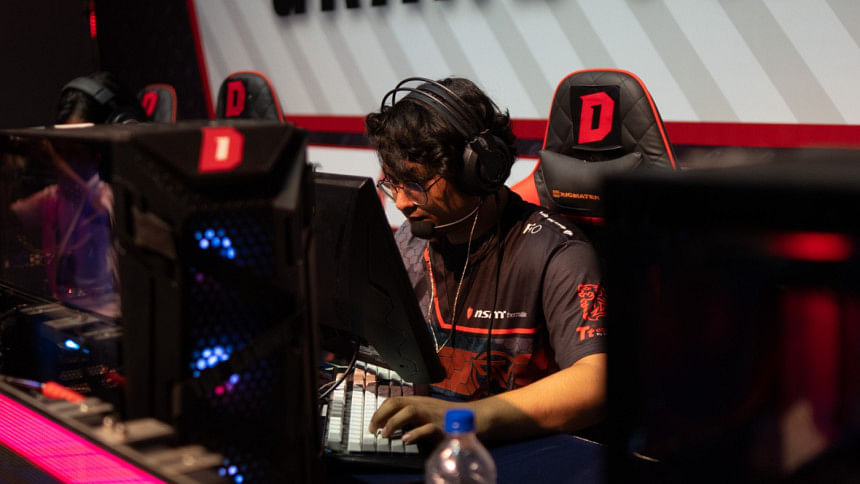
According to Abdullah, the PMNC 2025 attracted 2.5 lakh peak online viewers on the final day, with 3,400 teams of five players each, totalling 17,000 participants. He also points out that the Discovery One Cup Season 2, held in September 2023, was the country's largest offline esports event to date, featuring 3,500 players in total and a sold-out audience of 5,000.
However, despite the immense popularity of esports in the country, challenges remain. "Esports needs to be officially sanctioned by Bangladesh's sports authorities to unlock access to public venues, funding, and legitimacy," says Zonaed. He advocates for more inter-university tournaments and greater media coverage to nurture local talent.
On a similar note, Anik points out that improving infrastructure and accessibility, increasing tournament frequency and prize pools, boosting sponsorships and investments, as well as enhancing visibility and media coverage, are all necessary for esports to further thrive in the country.
When asked about what the local esports scene can do to make big tournaments more popular, Samiha emphasised community support: "In Bangladesh, we're still catching up with the rest of the world, but the community is growing fast. It's exciting to see more players, especially girls, stepping up."
Samiha adds, "We need structure, support, and a mindset shift. Tournaments should be more regular, better organised, and inclusive. If we really want to see Bangladeshi teams on an international stage, we've got to lift each other up."
Esports: the entertainment spectacle of our times
At its core, esports is about people - players, fans, commentators, and creators - united by a shared passion. What sets it apart is its unique fusion of competition, storytelling, and technological innovation, all wrapped in an immersive entertainment package that resonates with a digital-first audience.
As prize pools grow, production values soar, and stadiums fill up, esports has established itself as a spectacle to rival traditional sports and entertainment. Whether on a smartphone screen or under the glow of arena lights, esports captures the imagination of millions.
With global milestones like the Olympic Esports Games and rising local initiatives, the spectacle is only getting bigger. And for the millions who log in, cheer on, and dream of competing, the game is just getting started.

 For all latest news, follow The Daily Star's Google News channel.
For all latest news, follow The Daily Star's Google News channel. 










Comments